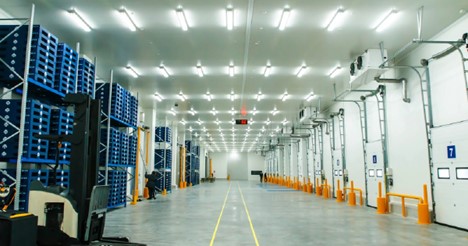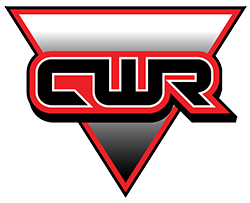
Industrial Refrigeration and Cold Chain Logistics
Industrial refrigeration systems are the backbone of the cold chain—a temperature-controlled supply chain system that ensures products like vaccines, medicines, and perishable foods are stored and transported at proper temperatures. They provide precise temperature control and consistent cooling across various stages of the logistics process. Here are some critical ways industrial refrigeration supports cold chain logistics.
Temperature Control and Monitoring
Industrial refrigeration systems maintain specific temperature ranges required for different products. For example, vaccines often require temperatures between 2°C and 8°C. Frozen foods, on the other hand, need to be kept at -18°C or lower. Modern refrigeration systems are equipped with sensors and IoT technology to monitor temperatures in real-time, ensuring compliance with safety standards.
Energy Efficiency
Energy consumption is a significant concern in cold chain logistics. Advanced industrial refrigeration systems utilize energy-efficient technologies such as variable-speed compressors and eco-friendly refrigerants to reduce costs while maintaining performance.
Customized Solutions
Industrial refrigeration can be tailored to meet the specific needs of different sectors. For example, pharmaceutical cold storage facilities may require ultra-low temperatures (-80°C) for certain medications, while food warehouses may prioritize humidity control alongside cooling.
Reliability and Redundancy
A single failure in the cold chain can result in significant losses. Industrial refrigeration systems are designed with reliability and redundancy in mind, including backup power supplies and fail-safe mechanisms to minimize disruptions.
Why This Partnership Matters
The integration of industrial refrigeration into cold chain logistics is essential for product integrity. Proper refrigeration ensures that perishable goods retain their quality, flavor, and nutritional value. For pharmaceuticals, it guarantees the efficacy and safety of life-saving medications and vaccines. Effective cold chain logistics also reduces waste. According to the Food and Agriculture Organization (FAO), approximately one-third of food produced globally is wasted, making this a valid concern.
Meeting Regulatory Requirements
Industries handling temperature-sensitive products must comply with stringent regulations, such as good distribution practices and food safety practices. Industrial refrigeration systems help meet these standards by providing precise and verifiable temperature control. In fact, it’s even possible to enable the transport of goods across long distances while maintaining quality thanks to cold chain logistics.
Innovations in Industrial Refrigeration for Cold Chains
There are a number of technological advancements that are enhancing the capabilities of industrial refrigeration in cold chain logistics. One key innovation includes IoT-enabled monitoring, which allows for real-time tracking of temperature and humidity across the supply chain. Other innovations include eco-friendly refrigerants that reduce environmental impact, scalable systems that adapt to growing business needs, and energy storage systems to optimize energy usage and lower cost.
Conclusion
The partnership between industrial refrigeration and cold chain logistics is a cornerstone of modern supply chains, ensuring the safe and efficient delivery of temperature-sensitive products worldwide. By leveraging advanced refrigeration technologies, industries can enhance product quality, reduce waste, and meet global demands more effectively. Contact Central Washington Refrigeration today at 509-249-8762 to learn more about our industrial refrigeration solutions.
